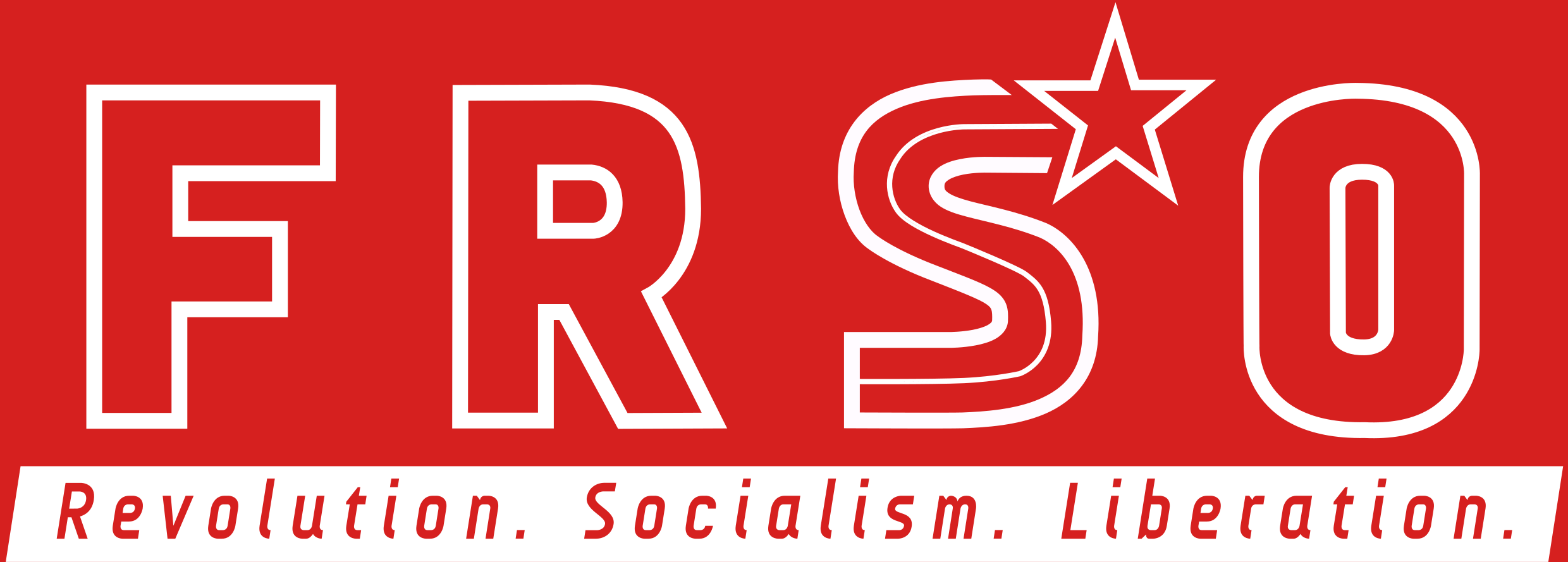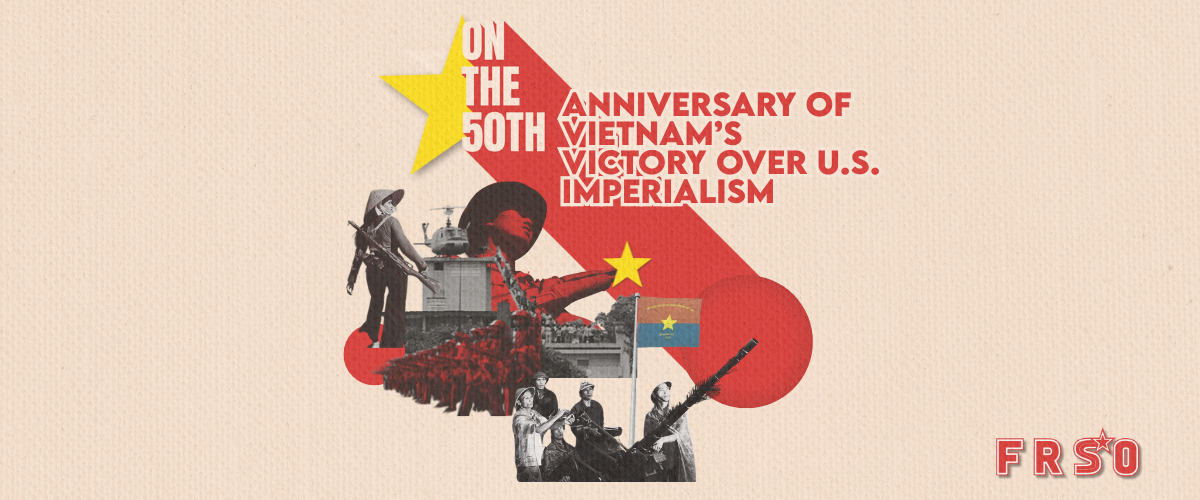50 years ago, on April 30, the gates of the Presidential Palace in Saigon were broken by a tank – a tank driven by a fighter for a unified and independent Vietnam. The flag of the U.S.-backed puppet regime came down, and the flag of the National Liberation Front replaced it.
Saigon, the capital of French colonialism, and then American imperialism, was no more. Saigon became Ho Chi Minh City – named for the communist leader who stood at the forefront of Vietnam’s fight for national liberation.
On July 17, 1966, Ho Chi Minh stated, “The war may last five years, ten years, 20 years, or even longer. Ha Noi, Hai Phong, and some cities and factories may be devastated. But the Vietnamese people will never be afraid! Nothing is more precious than independence and freedom. When victory comes, our people will rebuild our country, stronger and more beautiful than ever before.”
So, it came to be, after long decades of heroic struggle, the many had defeated the few. A small country defeated a big one, and Vietnam at last was liberated. A few weeks earlier, on April 18, the Cambodian puppet regime of Lon Nol was sent packing; in the capital city of Phnom Penh, streets were named after the students killed at an anti-war protest at Kent State. Laos would get free as well and embark on the socialist road.
A crucial factor in these victories was forward-looking leaders who made use of the science of Marxism-Leninism. When talking about how he became a communist, Ho Chi Minh said, “There is a legend, in our country as well as in China, on the miraculous ‘Book of the Wise.’ When facing great difficulties, one opens it and finds a way out. Leninism is not only a miraculous ‘book of the wise,’ a compass for us Vietnamese revolutionaries and people: it is also the radiant sun illuminating our path to final victory, to socialism and communism.”
The struggle to liberate Vietnam was a titanic battle that shook the world. Both the People’s Republic of China and the Union of Soviet Socialist Republics proved important aid that helped make the victory possible.
Here in the United States, the movement against the war on Vietnam would have a profound impact. It brought many millions into the streets. By the war’s end, the anti-war movement was a movement in solidarity with Vietnam, and the predominant flag at U.S. demonstrations was the flag of the National Liberation Front. The struggle in Vietnam also contributed to the emergence of a new communist movement in the country, which in turn would lead to the founding of the Freedom Road Socialist Organization.
The victory in Vietnam proves that those who have a just cause and history on their side will win. Since the early 1970s, U.S. imperialism has been a state of decline, and that decline is picking up speed today.
We continue to draw inspiration from past victories and are certain that there will be many more – from Palestine to the Philippines – and yes, right here in the U.S. To quote the outstanding revolutionary Mao Zedong, “While the road ahead is tortuous, the future is bright.”


